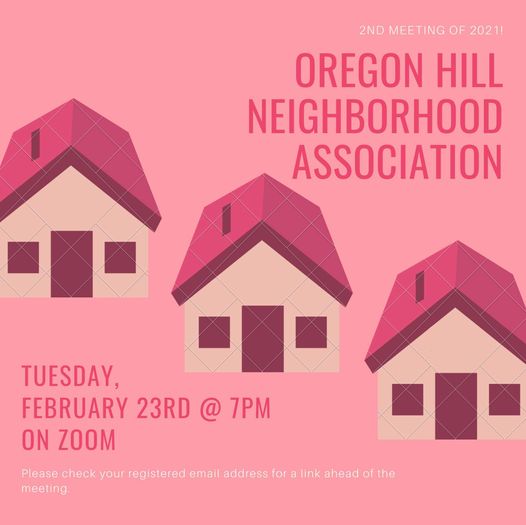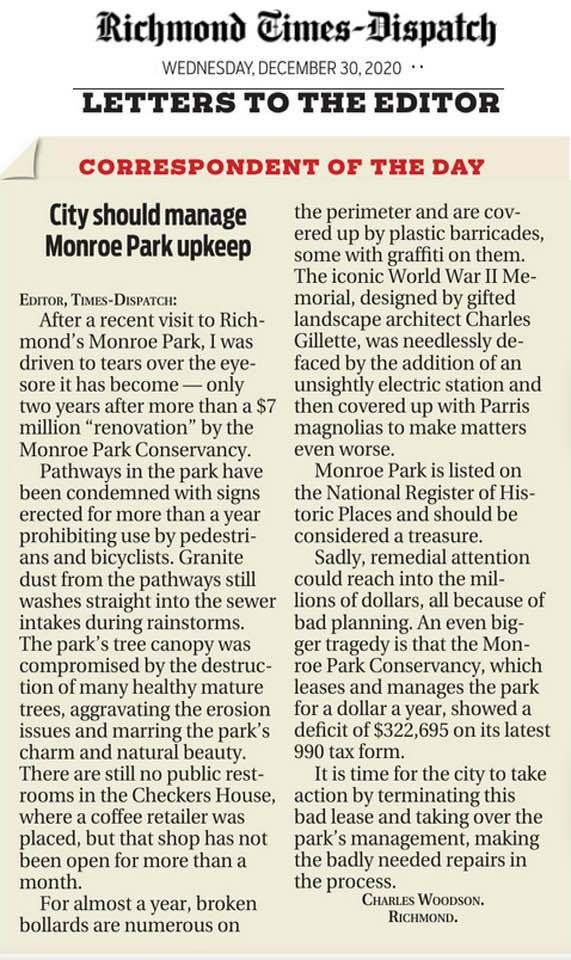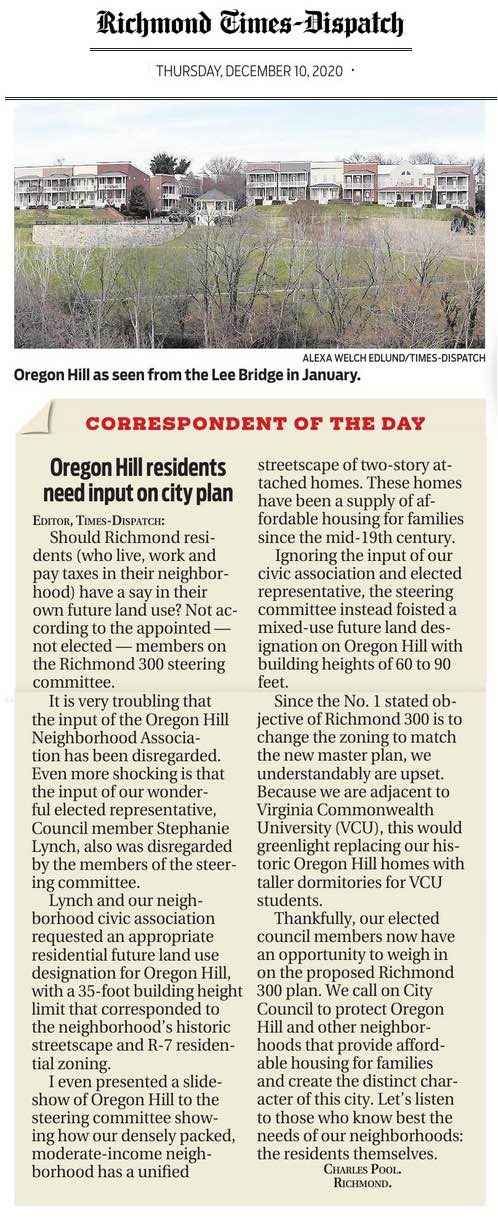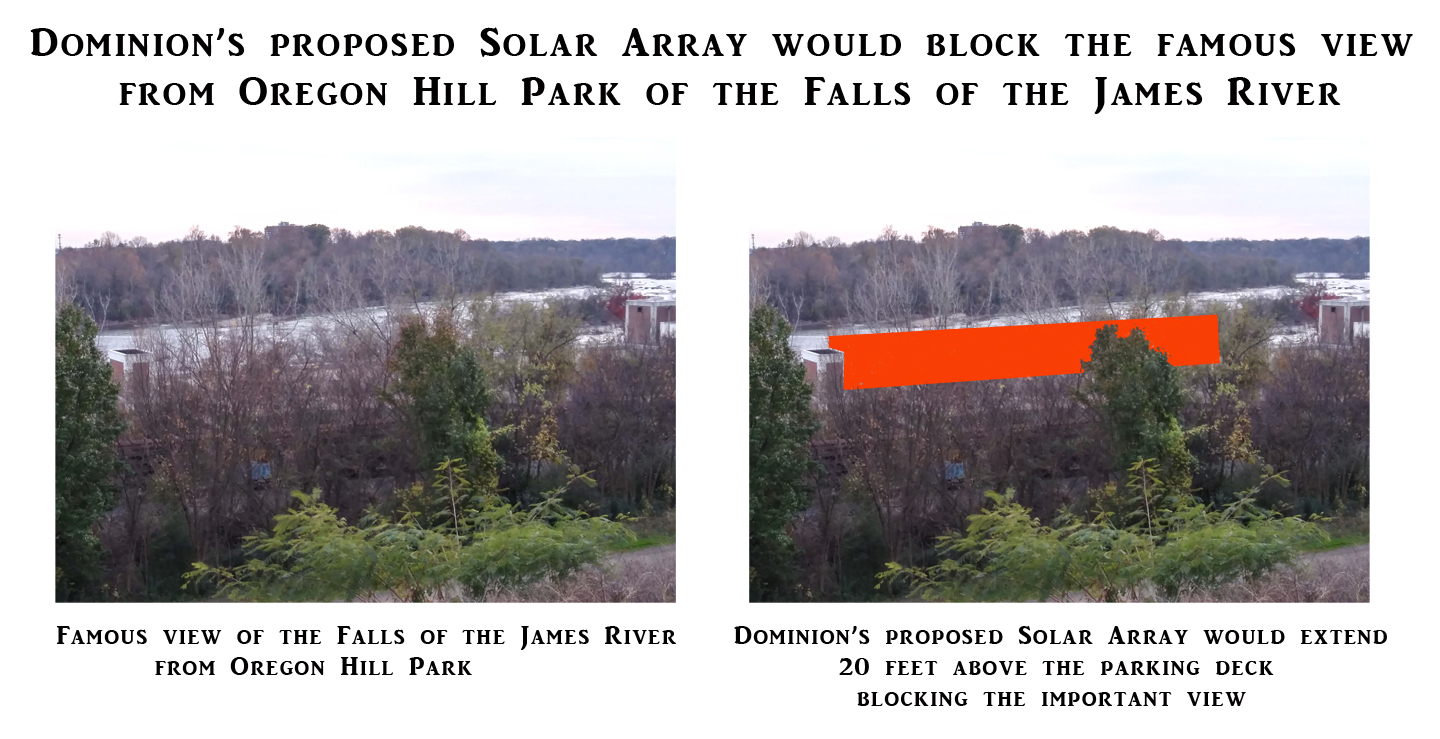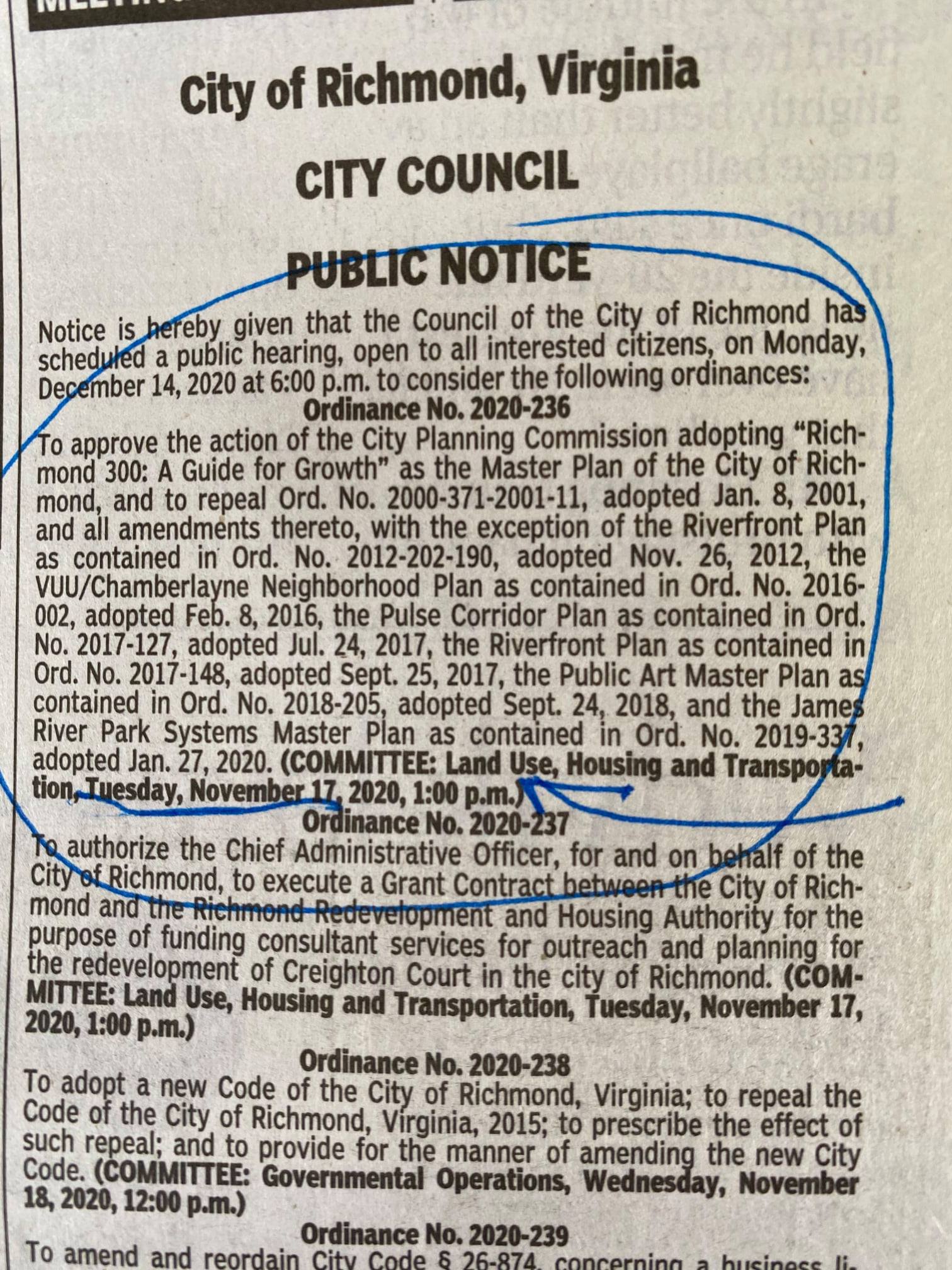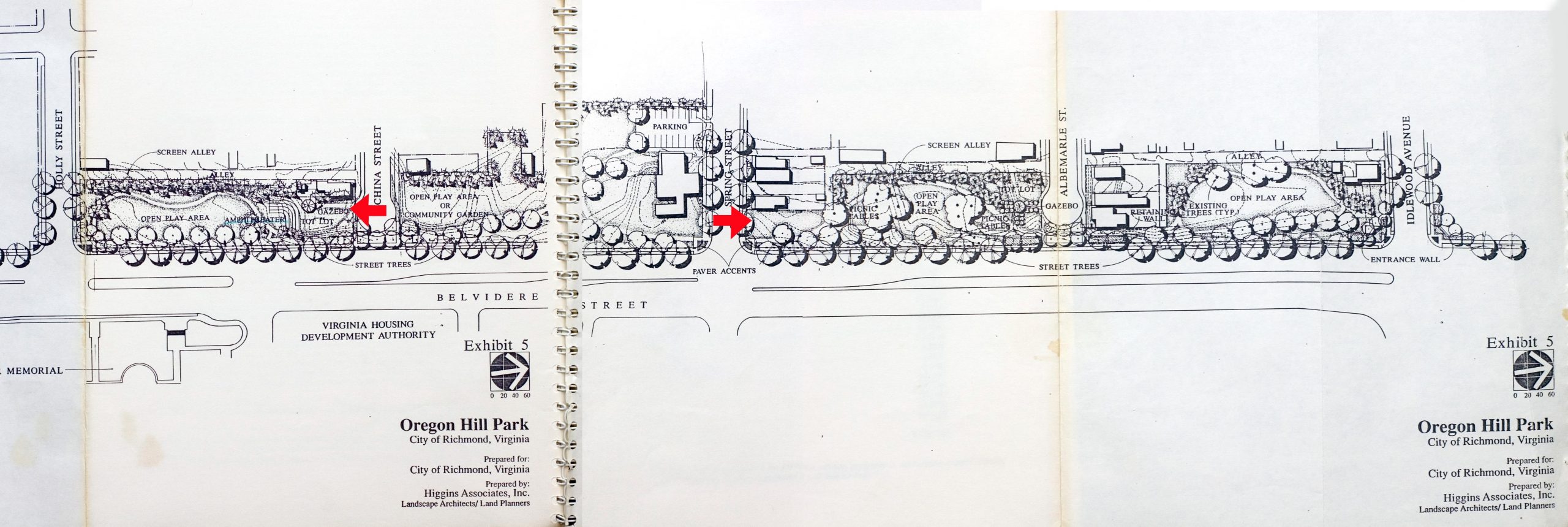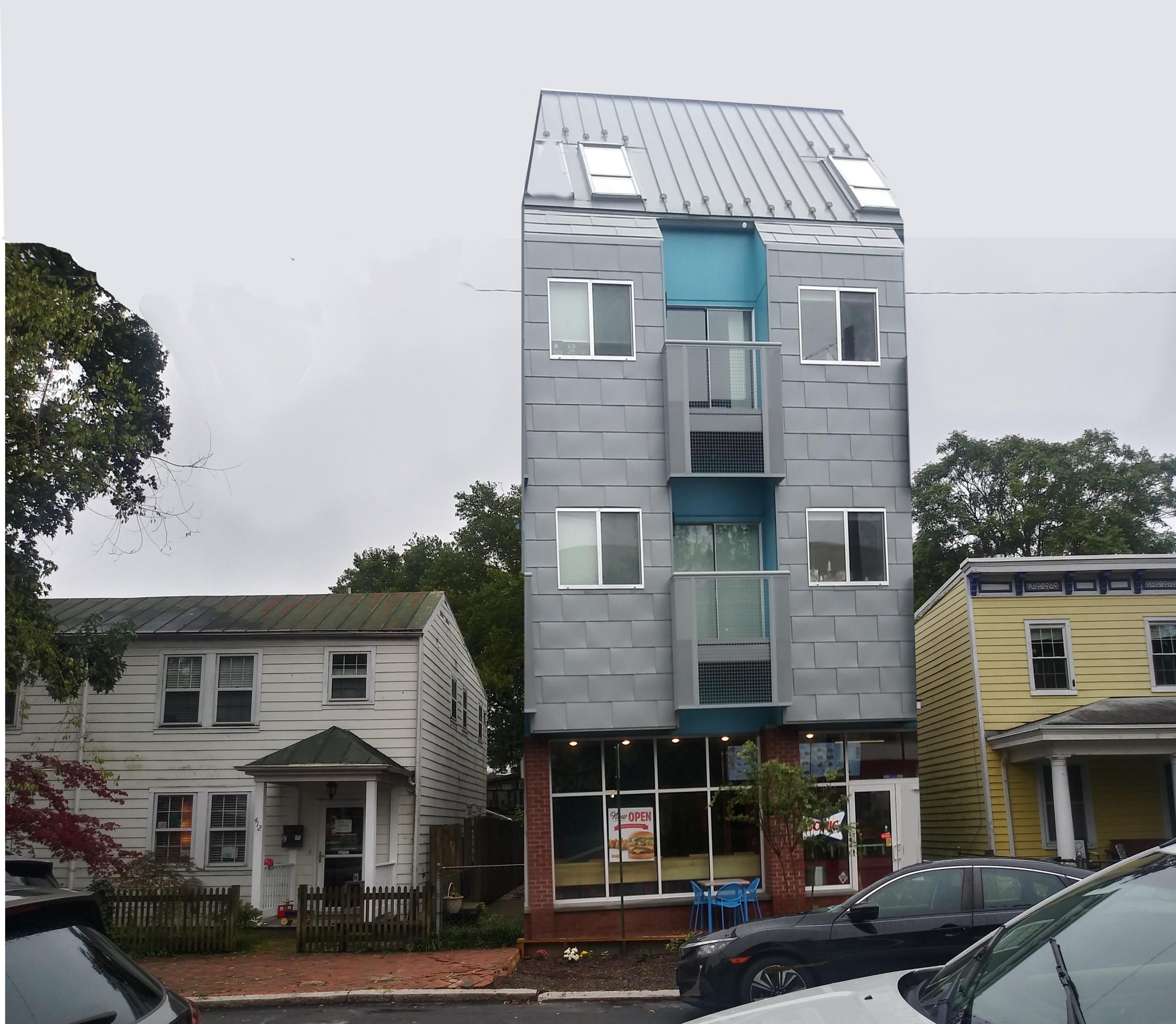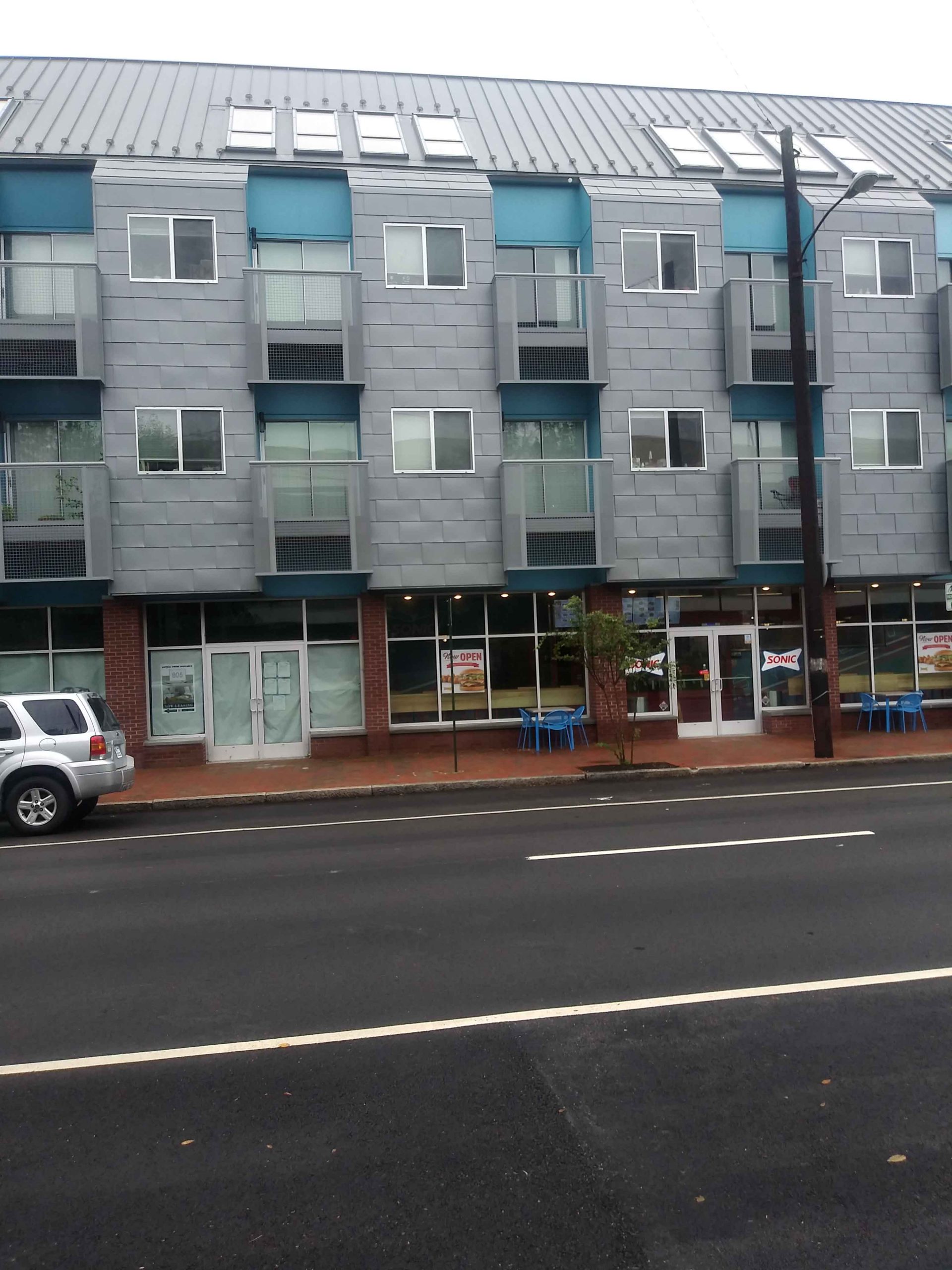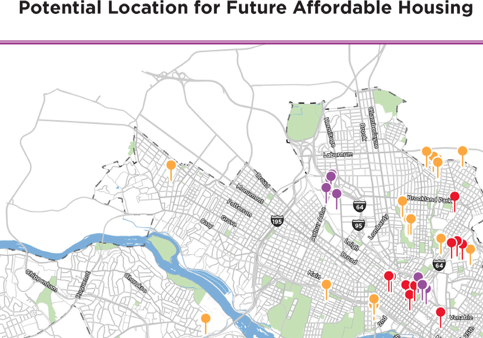We look forward to seeing you at the next OHNA meeting! We will send out the meeting URL ahead of the meeting on Tuesday. Please arrive ten minutes before 7pm, if possible, so we can admit everyone and allow for connection issues.
If you haven’t registered, and would like to attend, please fill out the survey:
https://forms.gle/pur5xCB3MKEPUfc69
Category Archives: government
Deadline quickly approaching for City of Richmond Department of Public Utilities utility relief assistance
From City press release:
Deadline to apply for the COVID-19 Municipal Utility Relief Program is January 17. DPU representatives available to answer questions and collect applications this week!
Richmond, VA – City of Richmond Department of Public Utilities customers that have fallen behind on their utility bills as a result of an economic hardship due to COVID-19 are encouraged to submit applications for utility relief.
The COVID-19 Municipal Utility Relief Program funding provided by the federal Coronavirus Aid, Relief, and Economic Security Act (CARES Act) is being administered by the Virginia Department of Housing and Community Development and supports municipal utility relief efforts during the pandemic. The utility relief assistance program is designed to be a one‐time opportunity with one payment per household or business. Funding for the program is limited, so don’t delay in applying.
Applications are due by midnight Sunday, January 17. This one-time opportunity is to help customers pay down or pay off high utility bills as a result of COVID-19 and avoid future utility service disconnections at the end of the pandemic’s state of emergency.
The application process is simple and takes less than 5 minutes to complete. Drop by one of these locations to fill out an application or feel free to drop off your completed application. DPU representatives will be on-site to assist from 10:00 am to 1:00 pm.
Tuesday, January 12, Southside Community Services Center, 4100 Hull Street
Thursday, January 14, North Avenue Library, 2901 North Avenue
Friday, January 15, The Market @ 25th, 1330 N. 25th Street
Customers can also request an application via email to DPUCares@richmondgov.com or by calling (804) 646-4646.
To be eligible for funding under this relief program, applicants must meet the following criteria:
· Be a customer (residential or non-residential) of the City of Richmond Department of Public Utilities with active utility service;
· Have experienced/been impacted by an economic hardship due to COVID-19;
· Have fallen behind on their City water, wastewater or natural gas utility bill for services during the period of March 1, 2020 through December 30, 2020;
· Have not received any other forms of relief or financial assistance for their City utility services; AND
· Submit the completed application so that it is received by DPU on or before January 17, 2021.With limited funds available and the application deadline quickly approaching, eligible customers are encouraged to apply immediately. More information, including the application, are available at www.rva.gov/public-utilities.
Correspondent Of The Day: “City Should Manage Monroe Park Upkeep”
City Council Votes Against Neighborhood To Pass Richmond300 Plan
Last night Richmond City Council voted unanimously in favor of the Richmond 300 plan, which changes Oregon Hill’s future land use from residential to mixed use.
This happened during holidays when most people are pre-occupied with family matters, in a pandemic emergency, during which the Virginia Attorney General has called on municipalities to suspend all non-life-threatening business, and specifically land-use issues.
City Council voted for this despite opposition from many different parts of the City, but especially from this neighborhood, which has taken part in the process from the beginning, put up with bad online ‘presentations’, and has consistently asked for changes in the plan.
Laurel Street neighbors Scott Burger and Charles Pool wrote prominent letters to the editor in the past few weeks, and outgoing Oregon Hill Neighborhood Association president Todd Woodson wrote a very heartfelt editorial in Style magazine.
It’s worth noting that as a City Council candidate Stephanie Lynch wrote:
“I absolutely pledge to defend the Oregon Hill Community from inappropriate encroachment from surrounding entities like VCU. One of my top priorities will be to work with Oregon Hill residents and the administration at VCU to enter into a longer term agreement regarding future development that is respectful of the needs and wishes of Oregon Hill residents. As a two time VCU grad, I understand all that VCU brings to the Richmond Community, but I also have close ties to Oregon Hill and I recognize that VCU could be a better neighbor to the Oregon Hill neighborhood and its residents. I think it’s imperative that before we approve future expansion plans from VCU, we work with them to enter into MOUs with surrounding communities like Oregon Hill. I additionally support the requests laid out in the OHNA’s written submissions to the Planning Commission and the RVA 300 planning committee. I’m looking forward to working with everyone in Oregon Hill to make sure that the neighborhood is protected and kept intact, housing needs are met, and the neighborhood character is preserved.”
And as Oregon Hill’s elected City Council representative, Stephanie Lynch did write to the Richmond300 planners, sharing neighborhood concerns. So some residents were surprised and taken aback that Lynch did vote for the unchanged Richmond300 plan last night.
What Councilperson Lynch has indicated is that she would be joining other Council members in putting forward amendments in the new year that may help the neighborhood’s cause.
All that said, questions abound. What will these proposed amendments consist of? Will they really get passed by City Council? If passed, will the Planning Commission accept them?
Is this setting up the neighborhood for success (to use Woodson’s wording) or failure?
Dominion’s Proposed Solar Array Would Block Overlook View
The zoning administrator rubber stamped the request from Dominion ignoring the signed declaration of restrictive covenants that restricted the height at that location. Evidently Dominion’s agreements are not worth the paper that they are printed on. The Sierra Club and Scenic Virginia and many other neighborhood and community groups were part of the covenant that Dominion and the City of RIchmond are now ignoring and breaking.
Land Use Committee Meets Tuesday
The Richmond 300 plan is in the agenda of the Land Use Committee this Tuesday Nov. 17th at 1pm.
The Councilpersons on the Land Use Committee are Robertson, Gray, Jones and Trammell.
Many Oregon Hill residents are hoping that Councilperson Stephanie Lynch asks the Land Use Committee to amend the Richmond 300 plan in favor of a Residential future land use designation for Oregon Hill. Many cite her pledge from when she was a candidate.
Tax Relief Deadline This Wednesday
Message from City Hall:
DEADLINE IS THIS WEEK – City Offering Contactless Pick Up of Application and Recertification Materials for the Extended Tax Relief for the Elderly and Disabled Program through Wednesday, October 28th, 2020
In response to the continuing COVID-19 Epidemic which disproportionately threatens Richmond’s more vulnerable populations, the City of Richmond’s Department of Finance is offering curbside contactless document pickup for new applicants and those recertifying for the Tax Relief for the Elderly and Disabled Program. We understand that COVID-19 represents very real barriers to participation with regards to transportation and public health. Continuing and new participants in the program are encouraged to call (804) 646-6015 to arrange for curbside document pickup.
It is the goal of the City of Richmond to include as many eligible participants in this program as possible. To that effect, contactless pick up has been paired with an extension to the application and recertification period through Friday, October 30th. Contactless curbside pickup will be available through Wednesday, October 28th.
Links for all application, recertification, and informational materials can be found using the link below:http://www.richmondgov.com/Finance/index.aspx
Tax Relief for the Elderly & Disabled Application and Information
Tax Relief for the Elderly & Disabled – Recertification Form
Tax Relief – Authorization Form – 3rd Party or Consent
Tax Relief Brochure
If you have any questions about the program, your eligibility, or wish to arrange for contactless curbside pickup, please call (804) 646-6015 or e-mail us at taxrelief@richmondgov.com as soon as possible.
Park Land Saved
Dear Ms. Ebert,
I was pleased to hear that you have removed 606 Spring Street and 609 China Street from the Biennial Real Estate Strategies Plan list for city property proposed to be sold. So that this error does not happen again, it is imperative that these lots are properly listed in city records as city park land and part of Oregon Hill’s linear park.
Thanks to the great help of the City Clerk’s office and the City Record’s librarian, I have located the City Council Ordinance 85-285 whereby the City Council authorized the purchase of the lots to create the linear park when Belvidere Street was widened. As noted in the Ordinance: “The purpose of this paper is to authorized city acquisition of the residual portions of the properties, and in some instances, additional properties that front on the side streets.” These two lots at 606 Spring Street and 609 China Street were among the additional properties that front on the side streets as shown on the Plats 21444 and 21437 attached to the ordinance. (Please see attached ordinance and details from the plats.)
In 1998 the Richmond City Council approved Council Resolution 98-R61-77. The purpose of this Resolution was to accept $2,336 from the Save Oregon Hill Organization to build the gazebo on the Oregon Hill park land that was formerly known as 609 China Street. This gazebo is still located on city park land on what was formerly known as 609 China Street. (Please see the attached photograph).
This is the link to the Council Resolution 98-R61-77:
https://richmondva.legistar.com/LegislationDetail.aspx?ID=2151094&GUID=44542EF4-3CB6-463B-AD25-9F247102E503&Options=ID|Text|&Search=Oregon+HillAs shown in the attached 1990 plan for the linear city park, 606 Spring Street and 609 China Street are essential portions of Oregon Hill’s park. (Please see attachment.)
Please update all city records to show that 606 Spring Street and 609 China Street are city park land. Our city park land is precious.
Sincerely,
Charles Pool
Planning Director Punked!
At the Planning Commission meeting today, Planning Director Mark Olinger stated that he was highly offended by the rendering of the possible building that could be constructed in Oregon Hill if the ‘mixed-used’ designation with four-six story building height was approved. He stated that he would never allow such a horrible building to be constructed in Oregon Hill. Apparently Mr. Olinger did not realize that it was a photo of the very building that he approved in Oregon Hill on West Cary Street! He simply cannot be trusted.
Of course, when Oregon Hill resident Charles Pool tried to respond to Olinger’s presentation, the Planning Commission Chair muted him.
We need a new Planning director, and probably a whole new administration and Planning Commission. The Richmond300 plan cannot be allowed be allowed to pass when it is effectively ignoring the input of citizens who just don’t want to see their neighborhood ruined by greedy developers.
This is what we can expect from Richmond’s establishment, which has a bad history of running roughshod over its less wealthy residents. Sadly, its doubtful the local media will pick up on it, because they do not want to offend said establishment.
Mayor Wants To Take Away Park Land For ‘Affordable Housing’
Mayor Stoney’s Biennial Real Estate Strategies Plan wants to use city land to promote affordable housing development and affordable homeownership.
To that end, it proposes taking City-owned parcels to the Maggie Walker Community Land Trust (MWCLT) for the development of affordable homes.
It is including at least two parcels in Oregon Hill’s Samuel Parsons Park in this proposal.
(and least people think this just about Oregon Hill, the Biennial Estate Strategies Plan also identifies other city park lands such as 1800 Maplewood in the Randolph neighborhood and 1901-1905 Conrad Street in the East End as building sites.)
Neighbors, understandably, are very upset. But so far, either the Mayor’s office, other City officials, the media, and the Mayor’s challengers in the election are ignorant of the proposal or don’t care.
Of course, many neighbors believe in and support affordable housing, and have done so historically in Oregon Hill and elsewhere.
But this proposal is bringing up bad memories from when other parts of the park were built on due to City government’s (and in particular, the Planning Department’s) ineptitude and callousness.
It’s part of the utter disregard for established neighborhood plans and the neighborhood’s dream for a Belvidere greenway.
Neighbors can’t help but see this as part of a coordinated attack on the Oregon Hill neighborhood in conjunction with the disastrous Richmond300 plan. If they were not aware of the target lines being drawn on the community before, they are becoming aware now.

